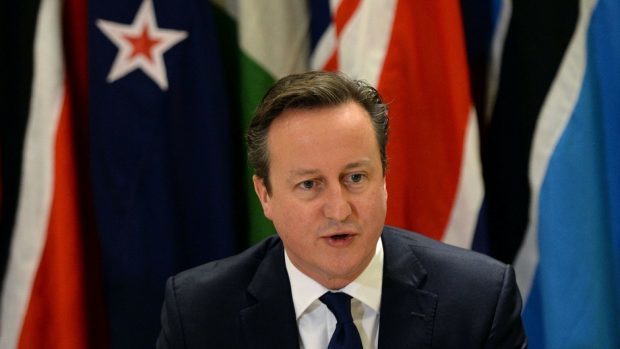RAF planes could be bombing Islamic State targets in Syria within days after David Cameron announced a vote on air strikes will be held on Wednesday.
The news came as it emerged Labour MPs would be allowed a free say on extending military action.
While the party officially remains opposed to air strikes unless certain conditions are met, the decision means shadow cabinet members will be able to vote with their conscience without formally defying the party whip.
Confirming the vote in a statement last night, Mr Cameron said Britain had to answer the call from its allies.
Advocating expanding action, he said: “It will take time but it’s the right thing to do to make sure we go after the terrorists who threaten people in our country.”
He repeated his assurance that the strikes could only be one part of a comprehensive strategy that also included work to find a political settlement, humanitarian assistance and a clear commitment to post-conflict reconstruction.
The Tory leader had previously said he would not hold a vote unless confident of a “clear majority” of support for fear of delivering IS a propaganda coup.
With up to 30 Conservative MPs understood to be wary of the prime minister’s proposal and the SNP unambiguously opposed, he needs the backing of a similar number of Labour members.
A Labour source said the shadow cabinet had been told 57% of Labour MPs are opposed with 43% in favour, suggesting almost 100 could join the Tories in the lobbies.
Mr Cameron said last night there was “growing support” for the “compelling case”.
Mr Corbyn, who is personally opposed to air strikes, had called on the prime minister to allow two full days of debate on the proposal next week at the earliest.
But Mr Cameron said it would last only one day, indicating the usual sitting time would be extended to allow for a “long and full” discussion.
Ian Murray, Scotland’s only remaining Labour MP, argued yesterday that the case for bombing IS targets in Syria had not been made.
He also said he did not believe the free Syrian army had the capacity to support air strikes on the ground.
The SNP’s Westminster leader Angus Robertson insisted it was now up to the SNP to take the lead in holding the UK Government to account.
He appealed to Mr Cameron to publish the draft motion ahead of the debate to allow for proper scrutiny.
